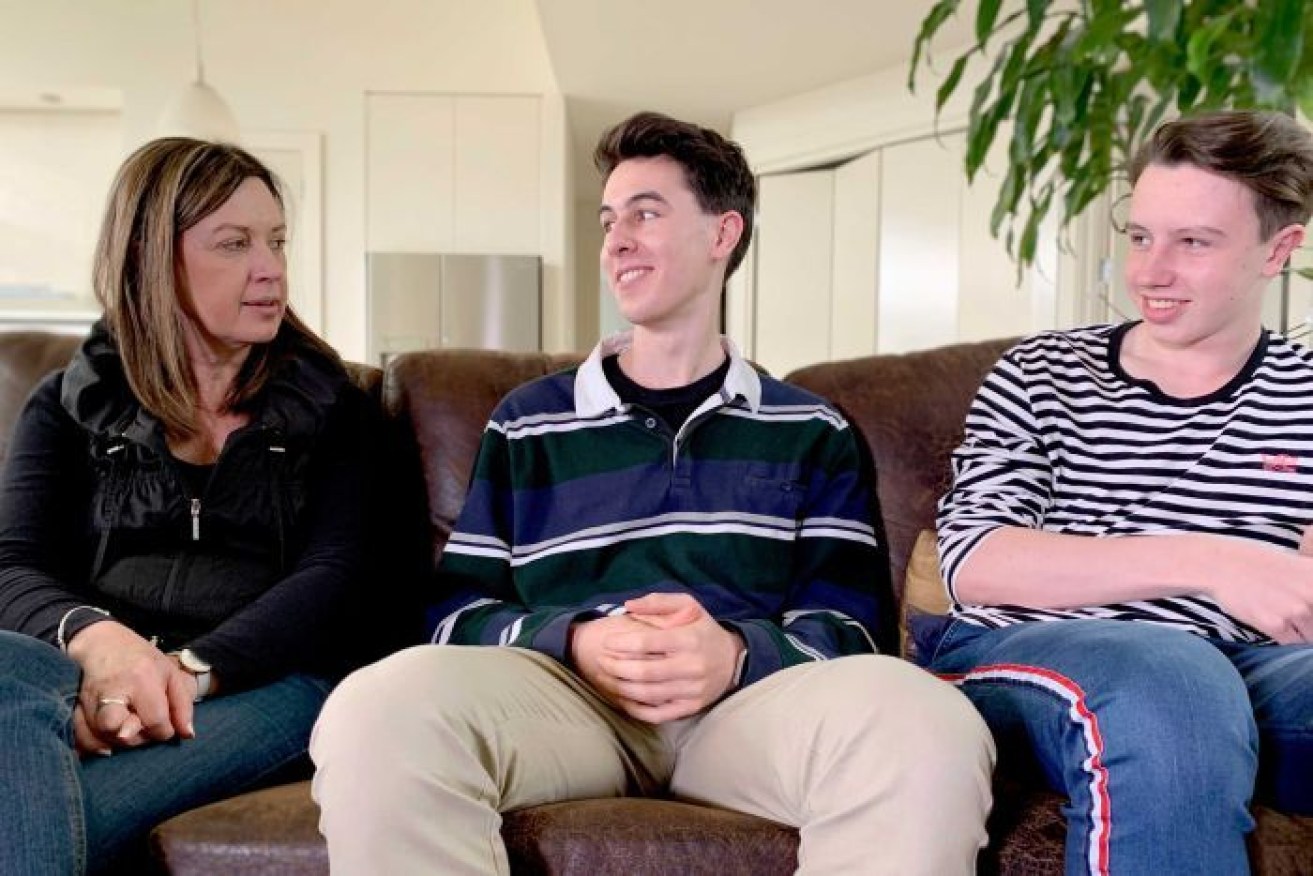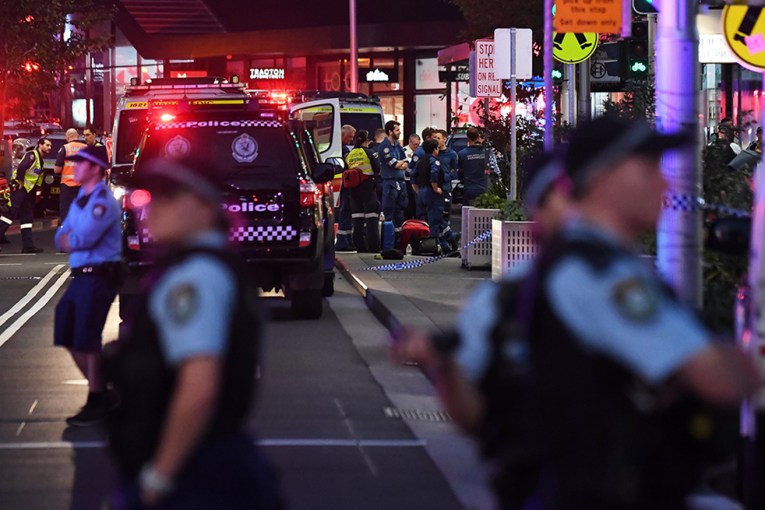Breast cancer gene mutation clinical trial to take place in Australia

Helen Hicks hopes her sons Ben and Joel Ransom could benefit if the trial is successful. Photo: ABC
Breast cancer is a disease that predominantly impacts women, but it is not unheard of for men to also carry a rare genetic mutation that significantly increases the risk.
Helen Hicks’s husband Tony Ransom is in that category – but the Adelaide couple will not know if the mutation has been passed on to their two sons, Ben and Joel, until they are tested at 18.
“Since we’ve found out we’ve been very vigilant,” Ms Hicks said.
“A lot of Tony’s cousins have had double mastectomies and hysterectomies so they can’t be impacted by cancer.”
The mutation occurs in genes known as BRCA1 or BRCA2 – BRCA is an abbreviation for “breast cancer”.
According to Cancer Council Australia, women who have inherited the mutation have up to a 60 per cent chance of developing breast cancer and a 20 per cent risk of ovarian cancer.
In Australia, about one in 400 women carry the mutation – but it can also increase men’s chances of getting breast cancer, along with prostate and pancreatic cancer.
Family welcomes any new research
For Ms Hicks and her sons, a medical solution would mean a lot to her immediate family – but also to any potential grandchildren down the track.
“I think that would be a huge thing,” she said.
“Then they could be released from having these massive procedures, knowing that if there was some kind of drug or something available, that could reduce the impact.”
Ben Ransom said, even at 15, he has considered the impact the BRCA gene could have on him.
“I have thought about it a lot and obviously I’m going to be tested when I’m 18,” he said.
The trial will use an osteopetrosis drug on women who carry the BRCA1 and BRCA2 gene mutation to see if it reduces their risk of cancer developing, and reducing the need for preventative surgery.
Breast cancer research organisation, the Australian-based Breast Cancer Trials, will release more details about the trial next week during a meeting in Adelaide.
Trials could lead to surgery delays
University of Adelaide Associate Professor Dr Nick Murray, a medical oncologist with the Royal Adelaide Hospital, said the breast cancer trials would be about prevention rather than treatment.
“Adelaide will be one of a number of Australian centres taking part in this trial,” he said.
“It’s research that originates with Professor Geoff Lindeman in Melbourne, who did a lot of laboratory research identifying this drug as potentially very important for preventing cancer occurring in women who carry the BRCA1 gene.”
He said during the trial it was going to be given to women once every three months for up to five years.

Clinical trials for woman with BRCA 1 and BRCA 2 gene mutation will take place in Australia.
Photo: Stefan Wermuth
“The hope is that this is a period of their lives where they will still be able to carry on as normal and not have to worry about going on to have surgery,” he said.
“I think many of the women will ultimately decide that they will take the big step and have a bilateral mastectomy.
“But it will enable them, if it’s successful, to delay that decision for a number of years.”
While this trial will focus on women who carry the gene, Mr Ransom said he was hopeful trials like this would be able to help him in the future.
“That would be a lot to me, especially if I do have the BRCA1 gene and it would also mean a lot to my family in the future if I do have sons and daughters,” he said.
“It’s just all about stopping that risk.”
Breast screening ‘remains critical’, Cancer Council warns
Hollywood actor Angelina Jolie put breast cancer genetic testing in the spotlight in 2013 when she underwent a preventative double mastectomy.
Jolie found out she had the BRCA1 gene mutation in 2013 after her mother, Macheline Bertrant, died of ovarian cancer in 2007.
Her aunty and grandmother have also had cancer.
The actor had an 87 per cent chance of developing breast cancer, and a 50 per cent chance of getting ovarian cancer.
She underwent a double mastectomy – a decision that highlighted genetic testing and preventative invasive surgery.
Dr Murray said the osteopetrosis drug “interferes with the way cells grow and develop” so it could be useful in the fight against the deadly breast cancer.

Angelina Jolie had a preventative double mastectomy in 2013 after finding out she had the BRCA1 gene mutation. Photo: Flickr
He referred to the discovery as “an incidental observation”.
“Some of the function that it disrupts in the cells actually means that it may stop some of the events that happen in women … that led to them developing these cancers,” he said.
The Cancer Council’s chief executive officer Professor Sanchia Aranda said she welcomed any new research to improve outcomes for people who are at a greater risk of cancer.
However, she warned most women who get cancer do not have the BRCA mutation.
“Participating in the BreastScreen programs and discussing personal risk for people with a family history remains critical,” she said.
Breast cancer experts will host a free public question and answer event on the latest in breast cancer research at the University of Adelaide next Wednesday night, as part of Breast Cancer Trials’ 41st Annual Scientific Meeting.
The event brings together more than 800 researchers from Australia and New Zealand.
–ABC








